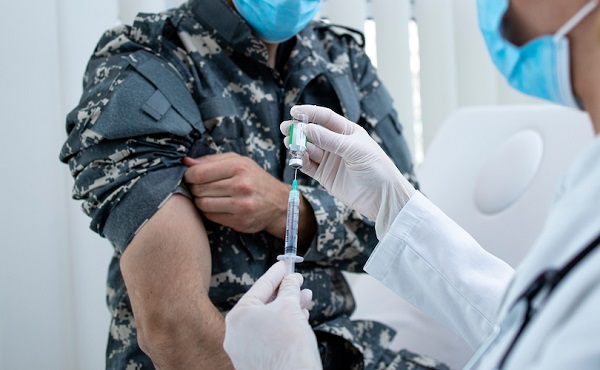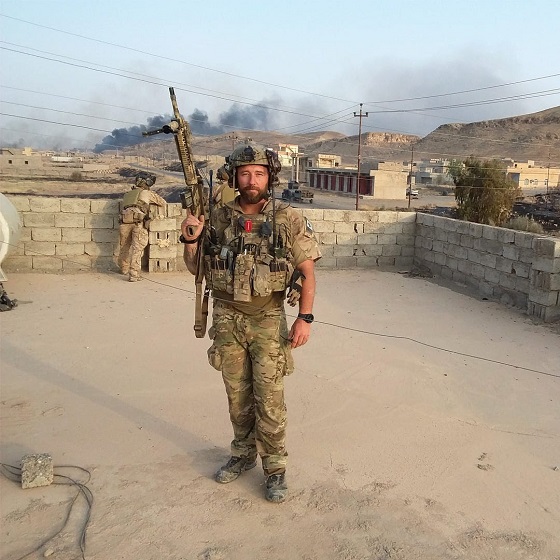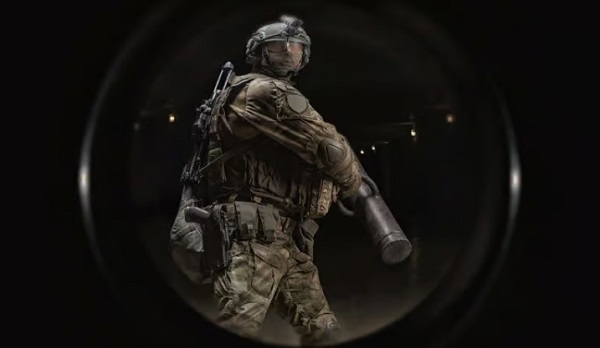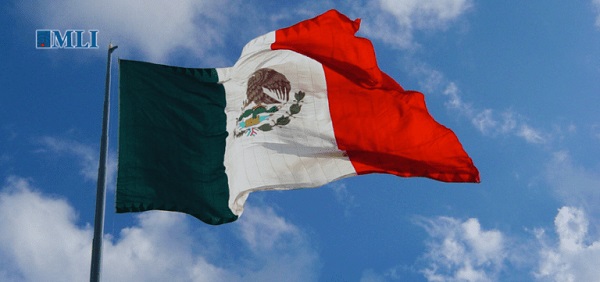armed forces
REMEMBRANCE DAY: REBUILDING CANADA’S MILITARY

From the Frontier Centre for Public Policy
By Brian Giesbrecht | David Redman
In Flanders fields the poppies blow
Between the crosses, row on row,
………..If ye break faith with us who die
We shall not sleep, though poppies grow
In Flanders fields.
This is the iconic poem written by John McCrae while World War 1 raged, shortly before he too became one of the 40,000,000 million or so people who died during that horrific, meat grinder of a war.
More than 61,000 Canadian soldiers, like McCrae, died in that awful war, and at least 170,000 were seriously wounded – many losing limbs and eyes.
And only a few decades later, World War 2 – really just a continuation of that first European civil war – took in excess of 40,000 more Canadian lives. Canadians were fighting against pure evil. Most were young men struck down in what should have been the prime of their lives
These brave men fought to safeguard the freedom and values that Canada stands for. That Canada didn’t start in 1867. It was formed long before then in a crucible of ancient Greeks, the Jews of Jerusalem, through the Roman Empire, the building of Britain, and the enlightenment. Not every Canadian soldier could articulate every nuance of exactly what that long journey that created Canadian freedom stood for, but they certainly knew why they were willing to sacrifice their lives to preserve what they loved. John McCrae knew exactly what he was fighting for, and he paid the ultimate price.
But what about his challenge to Canadians of today? Have we accepted that torch from failing hands, and held it high?
Or have we broken faith with those who died to save the Canada that he and so many others gave their lives for? What would John McCrae think of Canada today?
Let’s take a look first at Canada’s armed forces. During McCrae’s time, and right through WW2, and the Korean War that followed, Canada punched well above its weight internationally. Canada had a strong army, and our leaders were universally respected. Prime Minister Lester Pearson became the first and only Canadian Prime Minister to win a Nobel Prize for his deft handling of the Suez crisis.
Canada continued to stand strong on the international stage into the 1960s. Our military was strong, Canadian leaders were respected, and we contributed our fair share to our international commitments, such as NATO.
Then came the Pierre Trudeau years. The integration of the Canadian Armed Forces (CAF) in February 1968, while supposedly to increase efficiency, was in fact a brutal exercise in cost cutting, reducing the Army, Navy, and Air Force strengths from over 105,000 to 70,000. The senior Trudeau even wanted to take Canada out of NATO, and was only dissuaded from that bit of insanity by dire warnings from advisers, and threats from allies that doing so would have dire consequences for Canada, domestically and internationally.
The 1980s saw a return to the common-sense realization that Canada must support its armed forces. Total strength of the combined armed forces was expanded to 85,000, and commitments to NATO were honoured. Canada once again was respected by its allies, and once again Canada was punching above its weight on the international stage. In fact, the Mulroney government’s contribution to the ending of South African apartheid was one of our finest hours.
Canada’s armed forces once again felt supported and respected.
But that was then. And this is now. Canada has gone from that place of respectability to a very low place indeed. And virtually everything that has been done since the Justin Trudeau Liberals took power in 2015 has made things so much worse. Slash and burn is probably the best way to describe their military policy. A series of cuts since 2015 have rendered our armed forces virtually toothless. The latest cruel decision to cut a further one billion dollars from the armed forces can almost be seen as an in-your-face insult to our people in uniform.
Canada still has proud and capable men and women in our armed forces. But they are being emasculated by an uncomprehending government that insists on using Canadians’ hard-earned money for every Woke cause in the book – everything except our defence needs. We now completely rely on the Americans to defend us. We have extremely diminished capacity to honour our NATO commitments. Our international partners no longer take us seriously.
I think we can safely say that John McCrae would not be impressed with what has been done with his beloved army, and our reputation abroad.
The current federal government has no interest in rebuilding our debilitated armed forces. In fact, the Prime Minister candidly admitted that he has no intention of even trying to meet Canada’s NATO commitments.
Under his leadership only further cuts to our armed forces can be expected.
As stated in the National Post, there is simply not enough money to fund both a strong army, and the Trudeau government’s socialist pet projects. So, the army must go begging.
However, the current government will not be here forever. Planning must begin now to rebuild our forces, honour our international commitments, and regain our rightful place on the world stage.
In 1967, Canada proudly celebrated the centenary: a country to be proud of for our freedom, peace and internal unity. These values had been bought with the blood of our youth. Today, Canada is no longer considered a trusted ally. Until our nation takes national security seriously, Canada will remain irrelevant, both externally and internally.
Brian Giesbrecht, retired judge, and David Redman, retired Lieutenant Colonel in Canadian Army, are Senior Fellows at the Frontier Centre for Public Policy
armed forces
Judge dismisses Canadian military personnel’s lawsuit against COVID shot mandate

From LifeSiteNews
Associate Judge Catherine Coughlan rejected a lawsuit from more than 300 past and current members of the Canadian military who lost their jobs or were put on leave for not taking the experimental, dangerous COVID shots.
A Canadian federal judge has thrown out a lawsuit filed on behalf of some 330 past and current members of the nation’s military who lost their jobs or were placed on leave for refusing the experimental COVID shots, because she alleged that their lawsuit lacked “evidence” that the jabs were harmful.
The Canadian Armed Forces (CAF) members had sought some $1.3 million in damages from the government for having their charter rights violated due to the military’s 2021 COVID mandates, according to their lawsuit.
In a November 13 ruling, Edmonton-based Associate Judge Catherine Coughlan ruled in favor of the Trudeau government, and thus military’s COVID jab mandate, to strike down the case. Coughlan remarked that the plaintiffs’ case lacked “material facts” along with “evidence” and was filled with “vexatious language.”
READ: Canadian father files $35 million lawsuit against Pfizer over son’s jab-related death
“The only indications of bad faith are found when the pleadings baldly assert that, among other claims, Canada failed to carry out safety and efficacy testing for the vaccines, and that the Directives were premature and ‘promoted the fraudulent use of the biologics’,” she wrote, overlooking reports of thousands of injuries due to the shots in Canada alone.
As a result of the lawsuit being tossed, all plaintiffs are now on the hook to pay some $5,040 out of pocket in legal costs.
As reported by LifeSiteNews in June, documents obtained by LifeSiteNews show that the number of jab injuries in the CAF rose over 800 percent in 2021, with the most being credited to Moderna’s experimental COVID shot.
The CAF members’ lawsuit was filed in June of 2023 and overall sought some $1 million in damages, along with an extra $350,000 in general damages. The lawsuit also had a condition that there be a declaration made that mandating the COVID shots for military members was a violation of their charter rights.
READ: Israeli boy featured in COVID vaccine campaign dies of heart attack at age 8
LifeSiteNews reported in July that a member of Canada’s military who was injured after taking the experimental mRNA COVID jabs has been denied compensation from the nation’s Veterans Affairs department.
Under the CAF’s mandate, hundreds of military members were fired, or one could say, purged for not getting the COVID shots. This is in addition to the thousands of public servants fired for not agreeing to take the COVID shots.
The CAF eventually ended its COVID mandate in October 2022, which was months after the federal mandate was lifted, but members are still “strongly encouraged” to take the experimental shot.
The federal government under Prime Minister Justin Trudeau announced that its federal COVID shot workplace mandate would be dropped in June 2022, as would the mandate requiring domestic travelers have the shot to board planes and trains.
In November of 2023, a CAF member who spoke to LifeSiteNews under the condition of anonymity observed that the military considers members who refuse the COVID jab “a piece of garbage.”
READ: COVID shots have 200-times higher risk of brain clots than other jabs: new report
In March, LifeSiteNews reported on large personnel losses causing the CAF to consider dropping its remaining requirements altogether.
Although Canada has a Vaccine Injury Support Program (VISP) program, active members of the CAF, as well as veterans, are not eligible for the civilian program. According to Christensen, this leaves many COVID jab-injured CAF members and veterans with no recourse other than Veterans Affairs Canada.
COVID shot mandates, which came from provincial governments with the support of Trudeau’s federal government, split Canadian society. The mRNA shots themselves have been linked to a multitude of negative and often severe side effects, such as heart diseases, stroke, and death, including in children.
The shots also have connections to cell lines derived from aborted babies. As a result, many Catholics and other Christians refused to take them.
armed forces
Canadian veterans battle invisible wounds of moral injury and addiction

Moral injury, a unique psychological trauma, drives many Canadian veterans to substance use disorders as they struggle with inadequate support
When he was stationed in Bosnia in 1994, Steve Lamrock would drive a truck loaded with food through villages full of hungry people.
As a Canadian Armed Forces platoon quartermaster, one of Lamrock’s duties was transporting food to other soldiers involved in the United Nations Protection Force’s peacekeeping mission in the war-torn country.
“I had people starving to death, children starving to death,” he recalled, his wife seated beside him for support. “I could see, weekly, the deterioration in certain people in the community and the elderly from a lack of nutrition.”
Often, there was a surplus of rations.
“The UN policy was, if you can’t give exactly equal to both sides, you don’t give anything away,” he said, adding that it could trigger violent raids if you provided food to just one faction.
“So we would throw out food when there’s people starving to death.”
Moral dilemmas like these haunted Lamrock long after he retired from the military in 2009. Tormented by nightmares, he turned to alcohol to cope. “When I drank so much I passed out, I wouldn’t dream or remember the dreams as vividly or as often,” he said.
Lamrock — whose 24-year military career included tours in Afghanistan, Bosnia, Croatia, Kosovo and Iraq — was identified as suffering from psychological distress caused by the perception of having violated one’s moral or ethical beliefs. Experts are now calling this moral injury.
Moral injury is not formally recognized in the Diagnostic and Statistical Manual of Mental Disorders, an authoritative manual on mental disorders. But experts and veterans say moral injury affects many individuals who serve in the military, and requires better institutional support and treatment than are currently available.
Moral injury and addiction
“[Moral injury presents as] shame, guilt and anger that occurs when someone is exposed to an event that goes against their moral values, standards or ethics,” said Dr. Don Richardson, a psychiatrist and scientific director of the MacDonald Franklin Operational Stress Injury Research Centre in London, Ont. The centre studies the impact of stress injuries on military personnel, veterans and first responders.
Moral injury can result not only from witnessing or causing harm, but also from being affected by an organization’s actions or inactions, Richardson says.
The term moral injury was first introduced in the 1990s by American psychiatrist Dr. Jonathan Shay, who worked with veterans of the Vietnam War. It gained wider recognition following the Iraq and Afghanistan wars, when traditional treatments for post-traumatic stress disorder (PTSD) — such as Cognitive Behavioural Therapy — were proving to be only partially effective.
While fear is often at the core of traditional PTSD cases, feelings of guilt, shame, anger and betrayal are more strongly linked to cases of moral injury, says Dr. Anthony Nazarov, associate director of the MacDonald Franklin Operational Stress Injury Research Centre and an expert on moral injury.
Nearly 60 per cent of Canadian Armed Forces personnel deployed in NATO operations in Afghanistan reported exposure to morally injurious events, according to a 2018 study co-authored by Nazarov. Those exposed to such events demonstrated a greater likelihood of developing PTSD and major depressive disorders.
Dr. Ronald Shore, a research scientist and assistant professor in psychiatry at Queen’s University, says individuals suffering from moral injury often develop coping strategies due to a lack of support to help them process traumatic experiences.
One common coping mechanism is substance use, he says.
“You’re constantly feeling like something is wrong with you, that you’ve done something wrong … that leads to that self-regulation with addiction,” Shore said.
Lamrock says his experiences in Bosnia — and the habits he developed afterwards — deeply affected him and his family.
He recalled promising his young daughter they would do something fun after a night’s rest. “‘No, you won’t, Daddy, you won’t get up,’” she had replied, knowing he would likely be too hungover.
“That was my motivation to quit,” he said.
Betrayal
It is common for veterans suffering from moral injury to feel angry or betrayed due to the military’s actions or lack of support.
“[A person feels] betrayed by policies, betrayed by leaders, betrayed by organizations,” said Nazarov.
This has been the case for Gordon Hurley, 37, whose 14-year career in the Canadian Armed Forces included tours in Afghanistan, Africa and Iraq.
“When you get out, there’s nothing,” Hurley said. “If you think that Veterans Affairs is going to support you … they will, but you’re gonna have to fight for it.”
Hurley was medically discharged from the military in 2021 due to various physical and mental health challenges, including PTSD. He says Veterans Affairs requires him to continually prove the severity of his injuries to maintain disability support and benefits, such as reimbursements for retinal surgery and rehabilitation.
Hurley says that having to repeatedly prove his injuries to Veterans Affairs has been frustrating. “You were the ones who released me from the military … for these injuries, but now you are asking me to prove them back to you?” he said.
The Canadian Armed Forces redirected inquiries about support for veterans with moral injury and substance use disorder to Veterans Affairs Canada.
In an emailed statement to Canadian Affairs, Veterans Affairs spokesperson Josh Bueckert said mental health-care practitioners who work with veterans are “well aware of moral injury” and recognize the condition is often associated with operational stress injuries.
Bueckert said the department provides funding to organizations such as the Atlas Institute for Veterans and Families, which has a moral injury toolkit for veterans.
He also noted the department offers veterans a range of mental health resources, including access to 11 operational stress injury clinics and a network of 12,000 mental health professionals. Bueckert said veterans also have access to treatments for substance use disorder and for conditions such as “trauma-and-stressor-related disorders.”
Hurley acknowledges all these benefits are available, but says they are hard-won.
“All those benefits listed you get, but unless your condition has been [approved by the department], you do not receive those benefits,” he said.
‘Never-ending battle’
Josh Muir, 49, served nearly 14 years in the military and was deployed twice to Afghanistan. After sustaining soft tissue damage, hearing damage and spinal injuries in a 2010 improvised explosive device attack, he was medically discharged from the military — something he says he opposed because the military had become his entire identity.
“As soon as I’ve crossed this threshold, I no longer really have a clear picture of who I am, what I am, what use I might play in the future, and where to go from here,” he said.
He described feeling discarded by the military. “I was very quickly turned from a valuable asset into a liability that needed to be rid of as quickly and as expeditiously as possible,” said Muir, who turned to alcohol as a crutch.
 |
Canadian Forces veteran Josh Muir and his son Max at a beach in Vancouver, April 2024. [Photo Credit: Atlas Institute for Veterans and Families]
Shore, of Queen’s University, says recovering from moral injury and substance use disorder can require rebuilding one’s identity as the sense of purpose and belonging one gets from being part of the military fades.
Therapies such as acceptance and commitment therapy help veterans accept difficult emotions and commit to taking actions that align with their values. Another treatment called narrative therapy helps veterans separate their problems from their identity. These therapies can be effective at helping veterans recover, says Richardson, of the MacDonald Franklin Operational Stress Injury Research Centre.
Richardson also encourages veterans to seek peer support through groups like Operational Stress Injury Social Support or True Patriot Love Foundation.
David Fascinato joined the military in 2005 and served in psychological operations, including a deployment to Afghanistan in 2010.
Fascinato, who has since left the military, has struggled with mental health issues and moral injury. He says he has come to realize that veterans need organizations that offer community, purpose and tools to rebuild their sense of self.
This realization led him to co-found Team Rubicon Canada, a volunteer disaster relief organization that conducts missions in Canada and abroad. “Doing things with others for others, that’s where it helps reduce substance misuse and provides an off-ramp,” he said.
Subscribe for free to get BTN’s latest news and analysis, or donate to our journalism fund.
Fascinato has also found purpose by serving as executive director of Heroic Hearts Project Canada, an organization that supports veterans and first responders with alternative mental health treatments such as psychedelics.
Richardson and Shore view psychedelic-assisted therapy — which uses psychedelics to disrupt ingrained neural patterns — as a promising treatment for moral injury and substance use disorder..
Shore says support for psychedelic trials with veterans is still limited due to safety concerns and insufficient research. However, Canadian veterans are seeking psychedelic therapy in overseas retreats in places like Mexico and Peru.
Hurley says he was only able to recover from his alcoholism after seeking treatment at a psychedelic retreat in Tijuana, Mexico in 2022. “Only after I did ibogaine did I get released from [alcohol addiction],” he said, referring to a type of psychedelic drug.
While the production, sale and possession of psychedelics remain illegal in Canada, Health Canada in 2023 amended its Special Access Program, which allows health-care providers to request psychedelic medications for patients with life-threatening or treatment-resistant conditions.
In Muir’s case, he was able to gain control of his addiction and mental health issues after completing a two-month residential program at a treatment centre on Vancouver Island. The cost of the program was covered by Veterans Affairs.
While Muir is grateful to have his treatment costs covered, he says he would like to see Veterans Affairs generally improve the support it offers veterans, including offering more personalized assistance in the transition to civilian life.
He describes his experience with the Canadian Armed Forces’ transition program as taking in “information via fire hose,” with overwhelming seminars and a lack of personal guidance to navigate the process.
“There’s little services and ceremonies,” said Muir. “But ultimately you have to go back to you being a small cog in a large machine.”
“I felt like I was going to become Army Surplus, just like the items in the store that sit there after their function has been superseded by newer models.”
“I think it’s absurd,” said Fascinato. “We have to pick up the proverbial sword and shield, or in this case pen and pad of paper, and seemingly wage this never-ending battle for access to care that shouldn’t be this difficult to get.”
This article was produced through the Breaking Needles Fellowship Program, which provided a grant to Canadian Affairs, a digital media outlet, to fund journalism exploring addiction and crime in Canada. Articles produced through the Fellowship are co-published by Break The Needle and Canadian Affairs.
If you want to help us commission more high-quality journalism, consider getting a voluntary paid subscription.
-

 Brownstone Institute2 hours ago
Brownstone Institute2 hours agoThe Most Devastating Report So Far
-

 Economy14 hours ago
Economy14 hours agoCOP 29 leaders demand over a $1 trillion a year in climate reparations from ‘wealthy’ nations. They don’t deserve a nickel.
-

 Alberta12 hours ago
Alberta12 hours agoOn gender, Alberta is following the science
-

 Energy13 hours ago
Energy13 hours agoOttawa’s proposed emission cap lacks any solid scientific or economic rationale
-

 Bruce Dowbiggin1 hour ago
Bruce Dowbiggin1 hour agoCHL Vs NCAA: Finally Some Sanity For Hockey Families
-

 Brownstone Institute1 day ago
Brownstone Institute1 day agoFirst Amendment Blues
-

 Crime2 days ago
Crime2 days agoMexican cartels are a direct threat to Canada’s public safety, and the future of North American trade
-

 Business2 days ago
Business2 days agoDEI gone?: GOP lawmakers prep to clean house in federal government





